The harsh realities for referees
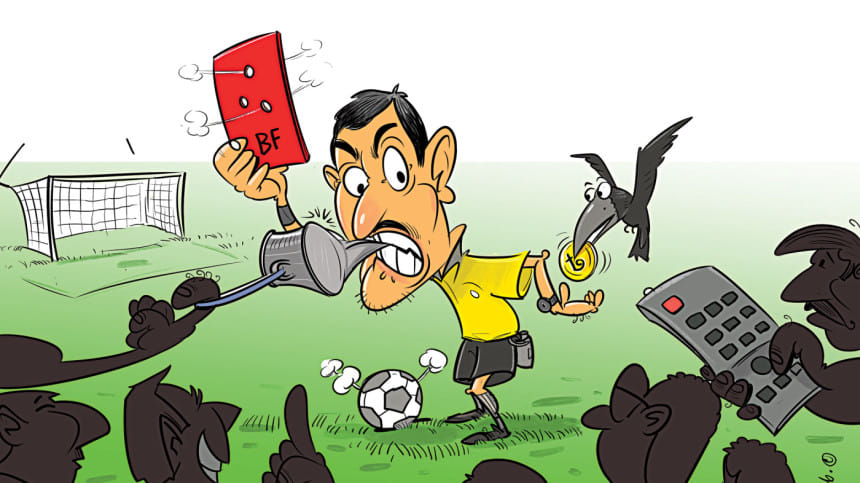
It might be that the referees made some mistakes at the early stage of the season and now they are compensating for those mistakes. Now everyone feels referees are making mistakes intentionally.
Incident 1: Police vs Bashundhara Kings, Independence Cup semifinal, BSSMKS, Dec 14, 2021.
Police FC were drawing 1-1 against Bashundhara Kings when their Afghan forward Amerdin Sharifi went through on goal on a long ball, but the assistant referee's flag went up. That was a decision which took everyone by surprise. Police went on to lose that match in extra time as their hopes of a maiden final appearance ended. Photo of Sharifi's hand gesture -- asking how much money the refs received to blow the whistle against his side -- was widely circulated on social media.
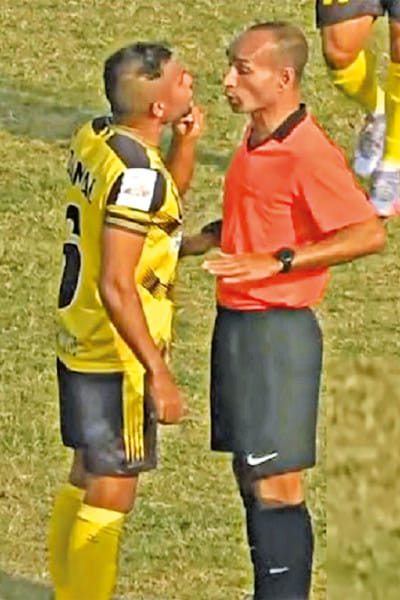
Referees can make mistakes, but some mistakes do really look intentional. Referees also don't have consistency in making decisions on similar offences, which creates controversy.
Incident 2: Saif vs Sk Russel, league match, Kings Arena, Feb 13, 2022
Saif Sporting Club's centre-back Riyadul Hasan Rafi was in a slight tussle for ball control with opposition forward Mahbubur Rahman Jewel inside the box, with the latter taking a fall and the referee, Bituraj Barua, pointing to the spot. The spot-kick was converted, ending Saif's 100 per cent record after the first two matches. Replays, however, suggested there was minimal contact between the two players. Saif players surrounded the referee following the incident where things got a little out of control and the referee later claimed that Saif captain Jamal Bhuiyan had kicked him during the protests.
These are two of the many incidents which grabbed headlines, more prominently than results and performances, since the start of the football season in December last year. The title race has intensified tremendously in recent years and so have the controversies surrounding the fairness of decisions and questions over the standard of refereeing.
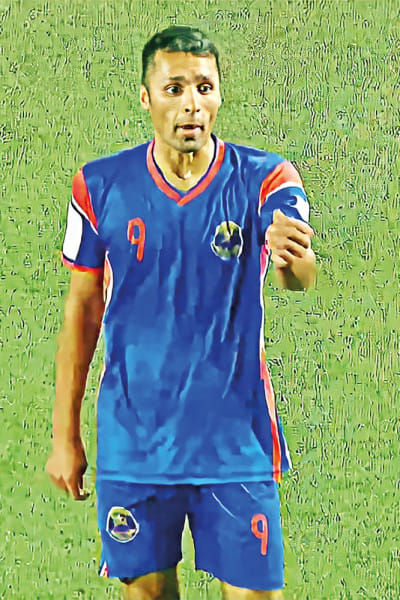
Refereeing decisions are a constant source of debate around the footballing world, and despite the availability of highly-trained match officials and the latest technologies at disposal, including Video Assistant Referee (VAR), the top competitions in the world still get a fair amount of controversial decisions.
Just last week, Everton were denied a genuine penalty against Manchester City in a Premier League match, a decision which denied the Toffees a point, keeping them close to the relegation zone. However, the referees' chief later acknowledged that they got it wrong and apologised to Everton. Although the apology will not help Everton in their battle for survival, the admission still implies that the mistake was unintentional and the process of reconciliation is on.
The reality in our football, though, is different. We hardly see referees or the referees' committee owning up to their mistakes or being held accountable for those. Although there is a process of evaluation and disciplining of referees in place here, the number of sanctions against referees is far too little compared to the number of apparent mistakes that are made on the pitch.
What lies at the heart of this malaise, though, is the desperate status of our referees: lack of remuneration and training along with constant pressure from different quarters -- all combining to make referees' job the least appealing and the most strenuous.
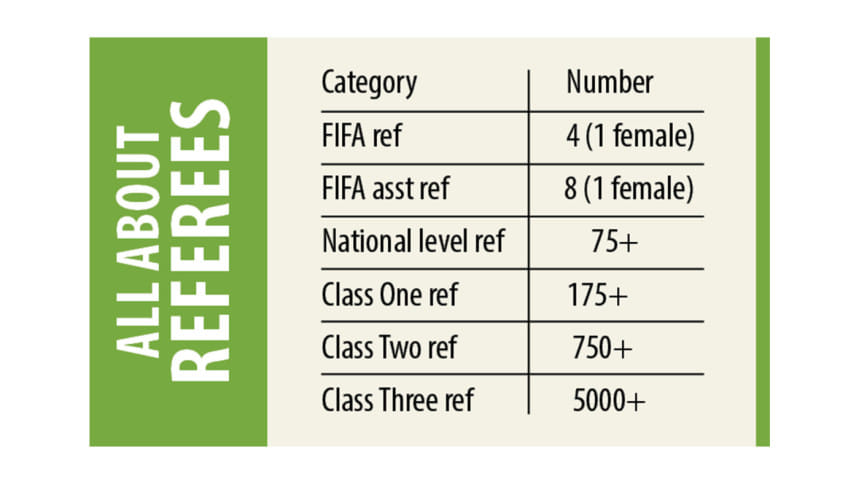
A top-category referee here gets around Tk 5300 if he's conducting a Premier League match within the city, a remuneration which is far too little even when one considers just one aspect of his expense: the daily nutritional intake required to keep him fit for officiating.
A referee is not just the least paid person on the pitch, he is also the least respected too. He would be subject to physical assault and slur from the players, club officials and fans if his decisions go against them.
It is a culture of fear within which referees work, hence, a questionable blow of the whistle or a dubious raising of the offside flag does not necessarily indicate that the match official is biased.
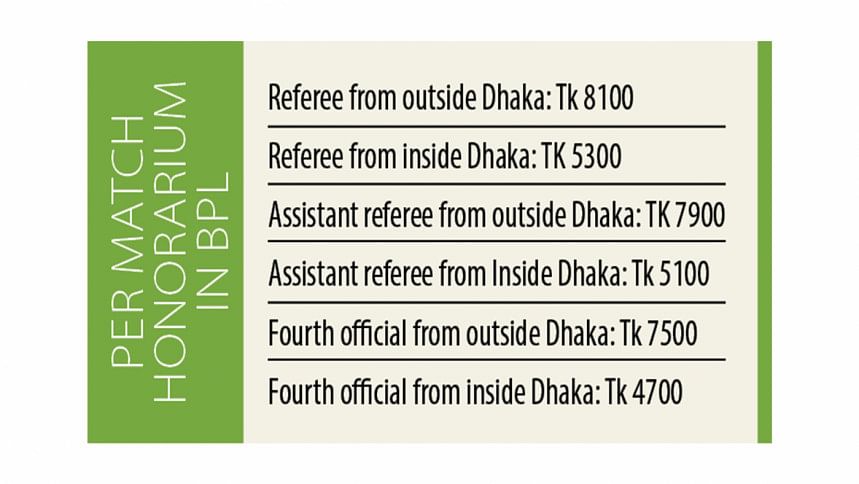
Having said that, the possibility of being influenced by the clubs cannot be ruled out completely, especially since there is an overlap of club ownership and federation positions in our country.
There have been some mistakes, but those are not intentional. We don't want foreign referees officiating here. However, there is a gap in quality between former referees and the current ones, which needs to be filled.
What can definitely help here is the VAR, and the idea of having VAR in BPL has been floated by some of the high-ups in the federation. However, when one considers that the cost of installing VAR (Tk 8-9 cr) would far exceed the league's budget, especially when the league can't even lure a decent title sponsor, the assertion of having VAR does not just sound ludicrous but also seems like an eyewash.
The other suggestion that came from within the federation is having some foreign referees conduct crucial title-decisive matches. Then again, who gets to decide which matches are crucial and title-decisive matches? This is an argument that will certainly drive a wedge among the clubs, leading to more questions than answers.
Instead of investing in VAR or foreign referees, the suggestion should be to empower the local referees by improving their pay-scale, investing in their training and recruitment and making the profession a more appealing and respected one, so much so that the referees do not fall to the glare or the lure.

 For all latest news, follow The Daily Star's Google News channel.
For all latest news, follow The Daily Star's Google News channel. 



Comments